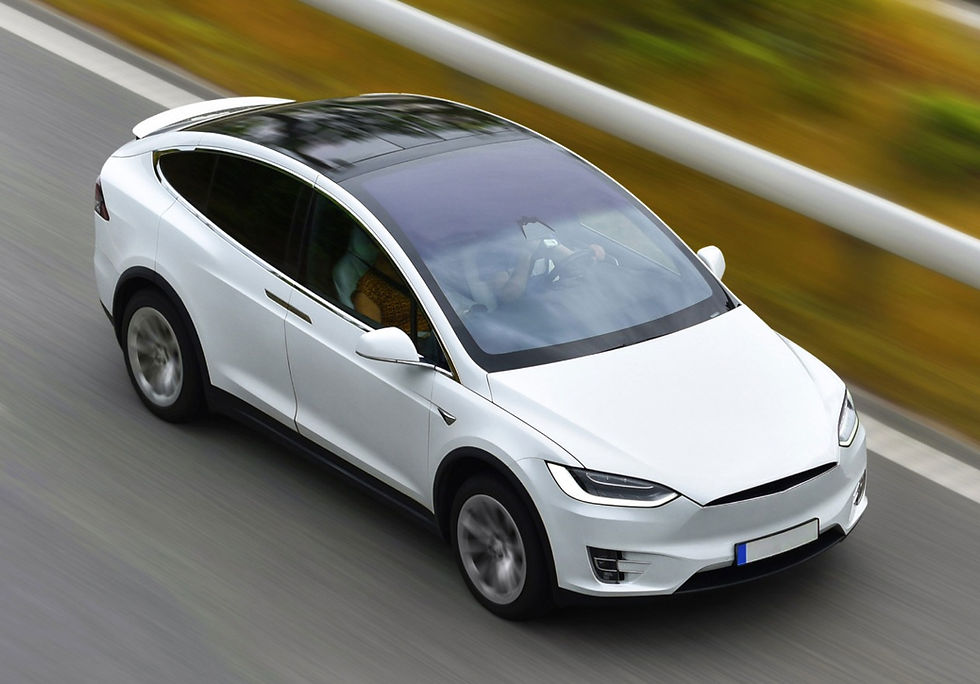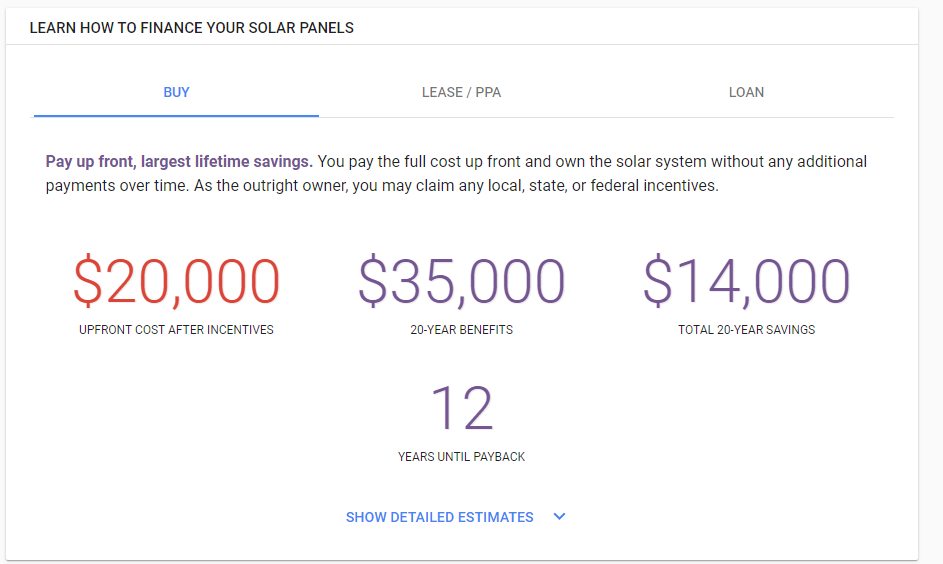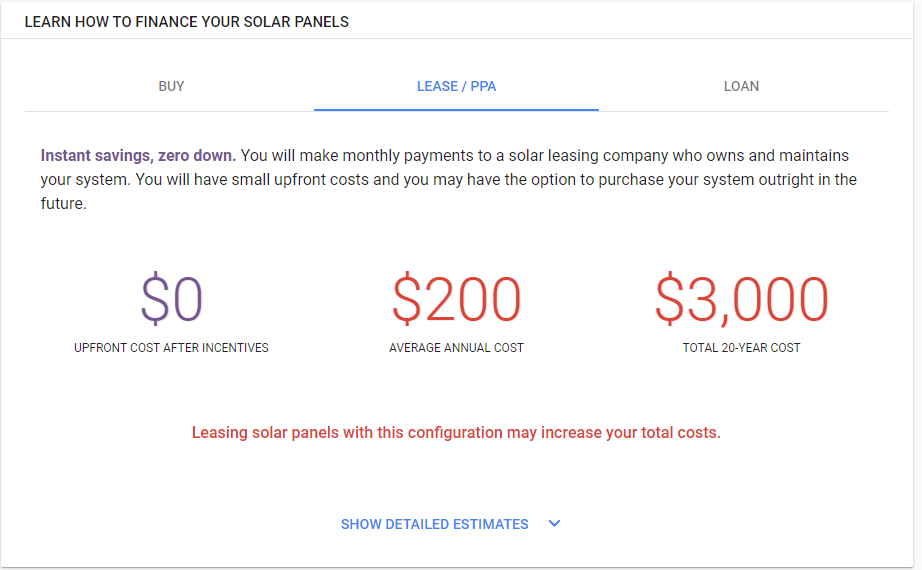Should You Get Solar Panels for Your Home?
- Adam Garrett
- Nov 12, 2022
- 9 min read
Updated: Jul 14, 2025

In theory, as someone who enjoys hunting/gathering/fishing/gardening, I like the idea of self-sufficiency in terms of utilities, from solar, to wells, to septic. I like the idea of initial investment for long-term savings & the idea of being good to the environment. That said, because the homes that my wife & I own aren’t good situations for solar at the moment, I haven’t pulled the trigger yet. I hope to eventually, but in the meantime of me waiting, solar panels are becoming more efficient and less expensive while grid power is becoming more expensive, where the math will likely eventually work out for me to get solar at some point in my life for my owner-occupied residence. I don’t expect that time to be any time soon for me, but for some, solar is a solid option right now.
Number One Issue: Will You Be There Long Enough for the Math to Make Sense?
I've been asked by at least a few clients about the prospect of purchasing solar panels. The main question that I had for them was the time that they planned to be in the property. Typically, they said a low number of years, so I've never actually recommended that a buyer install them that I can recall, except possibly in a homestead-style new construction scenario on 30+ acres.
Be careful about doing all the math too (i.e. maintenance costs, uninstall/reinstall cost after roof replacement, if applicable, etc.). With one buyer, they asked me after they had already signed off on a purchase. They were able to send me the documents, I was able to identify the "teaser" rate & how that would negatively hit them when the teaser rate stopped, and thankfully, they were able to get out of the contract after signing it from a pressure salesman.
While the actual number of years will depend on a wide variety of factors, & there are even some cases of net losses regardless of the tenure, here's a graph about how a big part of the savings is dependent on how you acquire the solar panels:

2. Solar Panels Make the Most Sense When A High Number of the Following Are True:
1. Your electric costs are above average
2. You live in an area where heating &/or cooling costs tend to be high due to extreme temperatures
3. You’ve already made cost-effective insulation upgrades if your home wasn’t already well insulated when you purchased it; insulation upgrades should last longer than whatever solar panels you get & need less maintenance than solar; in some cases, other energy-efficient upgrades might be a good idea, such as options to reduce your heating/cooling bills on your windows via tint, film, blinds, functioning interior or exterior shutters, & otherwise.
4. You've already taken other measures to increase energy efficiency like LED lights, energy-efficient systems when replacements were needed, etc. An upgrade to LED lights can sometimes pay for itself in less than 5 years, and it's generally best to make improvements that will pay for themselves the fastest first (especially those things that will last for a long time after paying for themselves), with solar typically taking much longer to pay for itself.
5. You’re in an area with frequent grid power outages (fuel generator power is typically significantly more expensive than grid power or solar power)
6. You plan to be covering the power bills at this home for >30 years
7. You purchase the solar panels in $ or at a low % interest rate with cash reserves to pay it off if needed rather than taking on a high-interest loan for them when unable to pay off the panels in cash if needed. That way, if you need to move, and your home hasn't seen much appreciation since when you purchased, you won't have a big problem on your hands when the panels don't add dollar-for-dollar value to your home.
8. You are in a location with plenty of sun, both in your city/county (# rainy/cloudy days per year) & directly on & adjacent to your property (i.e. trees). The orientation of your roof also matters. Check "Google Project Sunroof" for a better idea.
9. Your local power costs are high
Notice below that the average electricity costs in VA are less than half the costs in California. In places like Southern California, where there are significantly fewer rainy/cloudy days than here, as well as positive government incentives for solar more so than in VA, solar can make more sense more readily than in VA.

Image courtesy EnergySage
10. You care a lot about the environment, and even if solar didn’t end up making financial sense for you as you expected it to, and your plans changed (i.e. not living in a home as long as you had foreseen), you would prefer to take the risk if it means reducing your carbon footprint.
11. You have main systems that all or mostly rely on electricity (i.e. HVAC, water heater, etc.)
12. You have a large household (sq ft & # people)
13. You’re not in a state that is on the cusp of a potential energy revolution that could lower grid energy costs (VA could be such a state due to recent developments & legislation with offshore wind energy)
14. You already have a generator hookup installed at your home (even if you don’t use it for connecting your solar panels, it can be helpful for long-term solar outages to have a gas generator instead of a higher number of additional costly batteries)
15. You’re not in an area where heavy snow is present unless that snow is often accompanied by power outages. According to Arstechnica.com, “snow events caused the greatest reductions in performance (54.5 percent), followed by hurricanes (12.6 percent)”
16. You don't live in an area where there are ever less than 8 hours of daylight (i.e. Alaska) & are ideally closer to the equator than some Northern states of the US where the amount of daily daylight is more consistent with less fluctuation.
17. You’re in a state that provides significant incentives for installing solar. According to Forbes, “States with a high number of solar incentives include California, Texas, Minnesota and New York.”

18. You primarily drive an electric vehicle or expect to in the near future, and put 15,000 miles (14263 is average according to Zebra) or more on your car each year.
19. You're able to sell excess power to your local power company, who ideally doesn't rely practically at all on solar. Keep in mind that this isn't always possible.
20. You have a newer/long-lasting roof (essentially, the newer/longer lasting your roof, the more solar can make sense; putting 25-year solar panels on a roof with only 5 years life expectancy left doesn't make nearly as much sense. Also, solar roofs don't appear very cost-effective at the moment from what I've read, even if your roof is ready for replacement already, though I hope that one day they are more cost effective)
3. Note on DIY Solar
A DIY setup with no battery can be pretty cost-effective, & a small project can pay for itself quickly in some cases. That said, I’ve seen some pretty bad DIY projects in my day, and in some cases, jobs that should be completely redone. Also, according to Solar Reviews, “if you are not a contractor or have experience drilling holes in your roof and working with electrical wiring, this might be a larger project than is worth it. Another drawback of DIY installations is that in some states, incentives are not available unless the panels are installed by a licensed contractor. So you could save more money if a professional installs your panels because of all the incentives you might qualify for.”

4. Look Out For
1. Solar panel salesmen will sometimes be honest about whether or not a solar panel system is right for you, but that’s not always the case. Watch out for “teaser” rates that go up after a year or 2 substantially. A buyer who I helped purchase a home asked me after he had signed on the dotted line with a pressure solar panel salesman. Thankfully he was able to get out of it after I spoke to him about why it probably wasn’t good in his situation where he didn’t plan to be at the property for long.

2. If you sign a long-term lease on solar panels, not only is the cost typically higher than it would be if you were to buy them and then live in your house for the duration of the payments but also when you sell, you’ll have to determine whether you want to purchase those panels or pass on the lease burden to the buyer. If you read an article that mentions how it doesn’t seem to be a big deal to sell a home with leased panels in CA, keep in mind that VA is not CA. In CA, solar panels are about 19x as popular as in VA according to Solar Power per capita, blackouts are much more likely since CA is the state most likely to experience power outages according to Generac, and power bills are more than double on average vs VA according to Energy Sage on 11/12/22.
3. The numbers you’ll see online can vary widely & can be misleading. Don't just rely on 1 article for each piece of information. For instance, this article By SandbarSC states that “According to the National Renewable Energy Laboratory, homes with solar panels sell… for 17% more than those without.” An article by Solar Reviews stated that “Yet another study by the National Bureau of Economic Research estimated that home buyers gave a 4% premium to homes with solar energy systems installed than comparable homes without solar.” I expect that the 4% # adjusted for “comparable homes” while the 17% # did not. A home with solar is likely to be newer with more updates.
4. Pay careful attention to the numbers for costs & warranties without making assumptions or making a quick decision from a pressure salesman. For instance, a Tesla solar roof has a warranty for 25 years, but a Tesla Power Wall (as well as many other similar batteries) only has a 10 year warranty, but according to Regen Power a Tesla Power Wall should last an average of 24 years.
5. When looking things up online, as always, pay attention for bias, including a reviewer not covering certain issuers at times because that issuer isn’t paying them.
6. Check this guide from energy.gov on comparing solar options & this guide from CNET on red flags in a solar energy sales pitch.
5. Use Google Project Sunroof
Check "Google Project Sunroof" for a better idea about how long you would need to be paying for electric there to break even, and if you're planning on living there for at least that long, give solar a high consideration.

Image courtesy https://sunroof.withgoogle.com/

Image courtesy https://sunroof.withgoogle.com/
For instance, with my rental property, where I pay for electricity, a cash payment for solar appears viable, but leasing or financing does not appear to make sense.

Image courtesy https://sunroof.withgoogle.com/

Image courtesy https://sunroof.withgoogle.com/

Image courtesy https://sunroof.withgoogle.com/
Also in my case, I'm considering selling it at some point and using a 10x41 exchange, so if I were to get solar, that would hold me back to some degree from flexibility for that.
6. Note on Law
Some states have laws that limit an association's ability to restrict solar. Here's a 3rd party list of the basics that cites the pertinent laws. Be sure to look at the law's full details, as the basics, even if quoted, can be misleading without further context.
Here is a key part of it in VA:
"B. No association shall prohibit an owner from installing a solar energy collection device on that owner's property unless the recorded declaration for the association establishes such a prohibition. However, an association may establish reasonable restrictions concerning the size, place, and manner of placement of such solar energy collection devices on property designated and intended for individual ownership and use. Any resale certificate issued pursuant to § 55.1-2309 given to a purchaser shall contain a statement setting forth any restriction, limitation, or prohibition on the right of an owner to install or use solar energy collection devices on his property.
C. A restriction shall be deemed not to be reasonable if application of the restriction to a particular proposal (i) increases the cost of installation of the solar energy collection device by five percent over the projected cost of the initially proposed installation or (ii) reduces the energy production by the solar energy collection device by 10 percent below the projected energy production of the initially proposed installation. The owner shall provide documentation prepared by an independent solar panel design specialist, who is certified by the North American Board of Certified Energy Practitioners and is licensed in Virginia, that is satisfactory to the association to show that the restriction is not reasonable according to the criteria established in this subsection."
Related:
Generally Related:



Comments